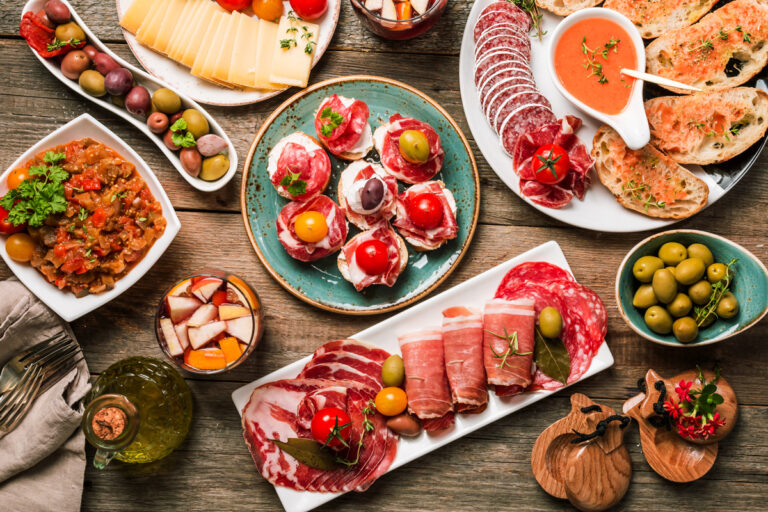Introduction: Cheese in the Spanish Culture
Cheese has been a staple in Spanish cuisine for centuries, and it is an important part of the country’s cultural heritage. The tradition of cheese-making in Spain dates back to the Roman Empire, and over the years, Spanish cheesemakers have developed a wide variety of unique and delicious cheeses that are now enjoyed all over the world.
Spaniards take great pride in their cheese-making traditions, and cheese is often served as a standalone dish or incorporated into many popular Spanish recipes. The country’s diverse geography and climate have contributed to the development of a wide range of cheese varieties, each with its own distinct flavor, texture, and aroma. In this article, we will explore some of the most famous Spanish cheese varieties.
The Manchego Cheese: Most Famous Spanish Variety
Manchego cheese is perhaps the most famous Spanish cheese variety. It is made from the milk of the Manchega sheep and is aged for various lengths of time. The cheese has a distinct nutty flavor and a crumbly texture, and it is often served as a standalone appetizer or used as an ingredient in many Spanish dishes.
Manchego cheese is protected by a designation of origin, which means that only cheese made in the La Mancha region of central Spain using Manchega sheep milk can be sold as Manchego. This protection ensures that the cheese maintains its high quality and unique flavor.
Mahón Cheese: A Mediterranean Delicacy
Mahón cheese is a popular cheese variety that is produced on the island of Menorca in the Balearic Islands. It is made from cow’s milk and is aged for various lengths of time. The cheese has a tangy flavor and a crumbly texture, and it is often served with fruit or nuts.
Mahón cheese is protected by a designation of origin, which means that only cheese made on the island of Menorca using cow’s milk from the island can be sold as Mahón. This protection ensures that the cheese maintains its unique flavor and quality.
Cabrales Cheese: Made in the Picos de Europa
Cabrales cheese is a blue cheese variety that is produced in the Picos de Europa mountains in northern Spain. It is made from the milk of cows, goats, and sheep and is aged in natural caves for several months. The cheese has a strong, pungent flavor and a creamy texture, and it is often served with bread or crackers.
Cabrales cheese is protected by a designation of origin, which means that only cheese made in the Picos de Europa mountains using the traditional methods can be sold as Cabrales. This protection ensures that the cheese maintains its unique flavor and quality.
Queso de Tetilla: Soft, Creamy and Delicious
Queso de Tetilla is a soft cheese variety that is produced in Galicia, northwestern Spain. It is made from cow’s milk and has a mild, buttery flavor and a smooth, creamy texture. The cheese is often served as a standalone appetizer or used as an ingredient in many Spanish dishes.
Queso de Tetilla is protected by a designation of origin, which means that only cheese made in Galicia using cow’s milk from the region can be sold as Queso de Tetilla. This protection ensures that the cheese maintains its unique flavor and quality.
Idiazábal Cheese: An Aged Delight from Basque Country
Idiazábal cheese is a semi-hard cheese variety that is produced in the Basque Country region of northern Spain. It is made from the milk of the Latxa and Carranzana sheep and is aged for several months. The cheese has a smoky, nutty flavor and a firm, crumbly texture, and it is often served as a standalone appetizer or used as an ingredient in many Spanish dishes.
Idiazábal cheese is protected by a designation of origin, which means that only cheese made in the Basque Country using the traditional methods can be sold as Idiazábal. This protection ensures that the cheese maintains its unique flavor and quality.

